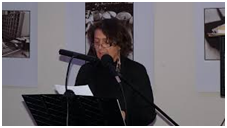It is high time for Salman Rushdie to be awarded the Nobel Prize," stated David Remnick, the editor of The New Yorker, in an article published on August 28, 2022. These words resonate with the sentiments of many in the literary world who firmly believe that Salman Rushdie's contributions to literature warrant the highest recognition. Recent events, such as the attempted murder in 2022, have only served to intensify this belief. As lively debates ensue among literary enthusiasts and critics alike, the question naturally emerges: Could Salman Rushdie join the esteemed ranks of Rabindranath Tagore, the last Indian-born writer to lay claim to this prestigious honor? Furthermore, what profound impacts and exceptional qualities distinguish Rushdie's work and life, inspiring many to consider him worthy of this monumental recognition?
Living under threat
Salman Rushdie has lived under a constant threat for decades. It all began on February 14, 1989, when Ayatollah Ruhollah Khomeini, the Supreme Leader of Iran, issued a fatwa (religious edict) calling for his death following the publication of his fourth novel, "The Satanic Verses," in 1988. This novel's portrayal of the Prophet Muhammad sparked outrage in the Muslim world, leading to bookshop bombings, book burnings, bans on the novel, and widespread demonstrations against Rushdie. Throughout his life, Rushdie has consistently faced a level of threat just one step below that of the queen, highlighting the seriousness of the risks he has endured. The threats persisted and materialized in a stabbing attack in New York. On August 12, 2022, while attending a literary conference in Chautauqua, upstate New York, Rushdie was about to deliver a public lecture when a knife-wielding assailant stormed the stage and viciously attacked him. Rushdie suffered approximately 12 stab wounds, including injuries to his face and neck. In an interview with the Spanish newspaper El Pais, Rushdie's literary agent, Andrew Wylie, revealed the severe nature of his injuries. He confirmed that Rushdie sustained three significant wounds to his neck, severe nerve damage in his arm that has rendered one hand incapacitated, and approximately 15 additional wounds on his chest and torso. Additionally, reports indicate that Rushdie has lost 40 pounds since the incident and has permanently lost vision in one eye.
Freedom of expression
The near-fatal knife attack in New York opened up old wounds, and reminded the world of the old fatwa and the continuing threat posed not only to Rushdie but also to the freedom of expression and the free world. Rushdie became a symbol of courage and a figurehead of free speech as he stood strong. Describing how he felt after the fatwa, Rushdie said, “the world was shouting in my ears. But I didn’t want to be derailed as an artist. So I told myself quite firmly, ‘Just go on being the writer you’ve always been.’ And if you show my books in chronological sequence to somebody who knows nothing about my life, I don’t think that reader would say, ‘Oh look, something terrible happened in 1989, and all the books after that are affected.’ I think they would see continuity in the literature.”
The Scottish novelist Alison Louise Kennedy told the BBC, “Rushdie’s reaction to the fatwa was always very, very positive. It allowed him to understand even more that what you do is you keep writing and keep speaking and you keep doing a thing which is eternal. And you do it for as long as you’re able to. Rushdie is the opposite of silence. Writers are the opposite of silence. If you want us to be silent, you want us to be dead.”
Literary accomplishments
Rushdie has received numerous awards and accolades for his literary work. His most renowned work is his second novel, “Midnight’s Children,” published in 1981. This novel won the Booker Prize and was awarded the “Booker of Bookers” in 1993 as the best novel to have won the Booker Prize in its first 25 years. “Midnight’s Children” indeed merges elements of realism and fiction to create a unique narrative. The novel tells the story of Saleem Sinai, a protagonist born at the exact moment of India’s independence from British rule. It is divided into three sections, covering major events in India’s modern history. Another significant work by Rushdie is “The Satanic Verses” (1988). This book ignited a firestorm of controversy due to its exploration of religious themes and its perceived criticism of Islam and blasphemous depiction of the Islamic faith and the Prophet Muhammad. Rushdie has authored several other notable novels, including “Shame” (1983), “The Moor’s Last Sigh” (1995), “The Ground Beneath Her Feet” (1999), “Two Years Eight Months and Twenty-Eight Nights” (2015), and “The Golden House” (2017).
Writing beyond boundaries
Rushdie quickly established himself as a leader in diaspora writings, known for his ability to write without boundaries and transcend geographical and cultural limitations. He ventures across countries and continents to unite diverse cultures and perspectives, going beyond nationalism and single cultures, seeking a broader diversity, much like that found in Britain. His novels incorporate universal themes such as migration, exile, rootlessness, and identity crisis, expanding his thinking and writing beyond the scope of the Indian subcontinent. In his works, Rushdie sheds light on history and politics, exploring historical events and political turmoil. He delves into the impact of colonialism, independence movements, and post-colonial struggles on individuals and societies. His focus on multiculturalism and hybrid ethnicity is evident in "The Moor's Last Sigh," published in 1995.
The characters in Rushdie’s novels possess mixed ethnic backgrounds, reflecting the multiracial and multicultural nature of both India and Great Britain. In his essays, Rushdie tackles international theses and global issues such as religion, cultural identity, and terrorism.
What sets Rushdie apart from other writers is his ability to excel in both fiction and nonfiction writing. "Midnight's Children," considered a retelling of his own life, goes beyond mere autobiography. Rushdie skillfully amalgamates facts with fiction to a point where reality and invention become difficult to distinguish in his works.
Standing the test of time
One of Salman Rushdie's characteristics in literature is his lack of interest in writing stories that have short-lived or seek temporary success. Instead, he aims to create literature with lasting significance that can withstand the test of time. He values books that go beyond immediate popularity and leave a profound impact on readers across generations. One example he points to is his own novel "Midnight's Children," published in 1981, which continues to stand the test of time and resonate with new readers. In an interview, he expressed, "Writers of popular fiction are looking for books that a large number of people will want to read and enjoy immediately. But the books that I admire as a reader and would be happy to create as a writer are the ones that stand the test of time. I'm very happy, for instance, that Midnight's Children is now 34 or 35 years old and that people who weren't born when the book was released can still connect to it."
Today, Rushdie's books are widely read and studied by readers and scholars alike. Many of his works are included in university curricula and are frequently discussed in literary circles, demonstrating their enduring appeal. Their translation into multiple languages has allowed them to reach a diverse global audience, transcending cultural and linguistic barriers and resonating with readers from various backgrounds and time periods.
A source of inspiration
Salman Rushdie's influence extends far and wide, serving as an enduring wellspring of inspiration for readers, writers, and artists across the globe. Unlike many of his contemporaries, Rushdie fearlessly traverses literary boundaries, boldly exploring uncharted territories of storytelling that amplify the voices of those in the diaspora, champion the cause of freedom, and celebrate the richness of multiculturalism. Today, numerous prominent writers and intellectuals stand beside him, fervently advocating for his Nobel Prize candidacy as a symbol of defiance against those who seek to stifle the power of the written word. While Rushdie has garnered a multitude of well-deserved accolades throughout his career, it is his ability to captivate diverse audiences and endure the tests of time that truly sets him apart. As his influence continues to resonate, the lingering question remains: Will the Nobel Committee recognize his resilience, his unwavering dedication to the principles of free speech, and his enduring contributions to the world of literature?

Living under threat
Salman Rushdie has lived under a constant threat for decades. It all began on February 14, 1989, when Ayatollah Ruhollah Khomeini, the Supreme Leader of Iran, issued a fatwa (religious edict) calling for his death following the publication of his fourth novel, "The Satanic Verses," in 1988. This novel's portrayal of the Prophet Muhammad sparked outrage in the Muslim world, leading to bookshop bombings, book burnings, bans on the novel, and widespread demonstrations against Rushdie. Throughout his life, Rushdie has consistently faced a level of threat just one step below that of the queen, highlighting the seriousness of the risks he has endured. The threats persisted and materialized in a stabbing attack in New York. On August 12, 2022, while attending a literary conference in Chautauqua, upstate New York, Rushdie was about to deliver a public lecture when a knife-wielding assailant stormed the stage and viciously attacked him. Rushdie suffered approximately 12 stab wounds, including injuries to his face and neck. In an interview with the Spanish newspaper El Pais, Rushdie's literary agent, Andrew Wylie, revealed the severe nature of his injuries. He confirmed that Rushdie sustained three significant wounds to his neck, severe nerve damage in his arm that has rendered one hand incapacitated, and approximately 15 additional wounds on his chest and torso. Additionally, reports indicate that Rushdie has lost 40 pounds since the incident and has permanently lost vision in one eye.
Freedom of expression
The near-fatal knife attack in New York opened up old wounds, and reminded the world of the old fatwa and the continuing threat posed not only to Rushdie but also to the freedom of expression and the free world. Rushdie became a symbol of courage and a figurehead of free speech as he stood strong. Describing how he felt after the fatwa, Rushdie said, “the world was shouting in my ears. But I didn’t want to be derailed as an artist. So I told myself quite firmly, ‘Just go on being the writer you’ve always been.’ And if you show my books in chronological sequence to somebody who knows nothing about my life, I don’t think that reader would say, ‘Oh look, something terrible happened in 1989, and all the books after that are affected.’ I think they would see continuity in the literature.”
The Scottish novelist Alison Louise Kennedy told the BBC, “Rushdie’s reaction to the fatwa was always very, very positive. It allowed him to understand even more that what you do is you keep writing and keep speaking and you keep doing a thing which is eternal. And you do it for as long as you’re able to. Rushdie is the opposite of silence. Writers are the opposite of silence. If you want us to be silent, you want us to be dead.”
Literary accomplishments
Rushdie has received numerous awards and accolades for his literary work. His most renowned work is his second novel, “Midnight’s Children,” published in 1981. This novel won the Booker Prize and was awarded the “Booker of Bookers” in 1993 as the best novel to have won the Booker Prize in its first 25 years. “Midnight’s Children” indeed merges elements of realism and fiction to create a unique narrative. The novel tells the story of Saleem Sinai, a protagonist born at the exact moment of India’s independence from British rule. It is divided into three sections, covering major events in India’s modern history. Another significant work by Rushdie is “The Satanic Verses” (1988). This book ignited a firestorm of controversy due to its exploration of religious themes and its perceived criticism of Islam and blasphemous depiction of the Islamic faith and the Prophet Muhammad. Rushdie has authored several other notable novels, including “Shame” (1983), “The Moor’s Last Sigh” (1995), “The Ground Beneath Her Feet” (1999), “Two Years Eight Months and Twenty-Eight Nights” (2015), and “The Golden House” (2017).
Writing beyond boundaries
Rushdie quickly established himself as a leader in diaspora writings, known for his ability to write without boundaries and transcend geographical and cultural limitations. He ventures across countries and continents to unite diverse cultures and perspectives, going beyond nationalism and single cultures, seeking a broader diversity, much like that found in Britain. His novels incorporate universal themes such as migration, exile, rootlessness, and identity crisis, expanding his thinking and writing beyond the scope of the Indian subcontinent. In his works, Rushdie sheds light on history and politics, exploring historical events and political turmoil. He delves into the impact of colonialism, independence movements, and post-colonial struggles on individuals and societies. His focus on multiculturalism and hybrid ethnicity is evident in "The Moor's Last Sigh," published in 1995.
The characters in Rushdie’s novels possess mixed ethnic backgrounds, reflecting the multiracial and multicultural nature of both India and Great Britain. In his essays, Rushdie tackles international theses and global issues such as religion, cultural identity, and terrorism.
What sets Rushdie apart from other writers is his ability to excel in both fiction and nonfiction writing. "Midnight's Children," considered a retelling of his own life, goes beyond mere autobiography. Rushdie skillfully amalgamates facts with fiction to a point where reality and invention become difficult to distinguish in his works.
Standing the test of time
One of Salman Rushdie's characteristics in literature is his lack of interest in writing stories that have short-lived or seek temporary success. Instead, he aims to create literature with lasting significance that can withstand the test of time. He values books that go beyond immediate popularity and leave a profound impact on readers across generations. One example he points to is his own novel "Midnight's Children," published in 1981, which continues to stand the test of time and resonate with new readers. In an interview, he expressed, "Writers of popular fiction are looking for books that a large number of people will want to read and enjoy immediately. But the books that I admire as a reader and would be happy to create as a writer are the ones that stand the test of time. I'm very happy, for instance, that Midnight's Children is now 34 or 35 years old and that people who weren't born when the book was released can still connect to it."
Today, Rushdie's books are widely read and studied by readers and scholars alike. Many of his works are included in university curricula and are frequently discussed in literary circles, demonstrating their enduring appeal. Their translation into multiple languages has allowed them to reach a diverse global audience, transcending cultural and linguistic barriers and resonating with readers from various backgrounds and time periods.
A source of inspiration
Salman Rushdie's influence extends far and wide, serving as an enduring wellspring of inspiration for readers, writers, and artists across the globe. Unlike many of his contemporaries, Rushdie fearlessly traverses literary boundaries, boldly exploring uncharted territories of storytelling that amplify the voices of those in the diaspora, champion the cause of freedom, and celebrate the richness of multiculturalism. Today, numerous prominent writers and intellectuals stand beside him, fervently advocating for his Nobel Prize candidacy as a symbol of defiance against those who seek to stifle the power of the written word. While Rushdie has garnered a multitude of well-deserved accolades throughout his career, it is his ability to captivate diverse audiences and endure the tests of time that truly sets him apart. As his influence continues to resonate, the lingering question remains: Will the Nobel Committee recognize his resilience, his unwavering dedication to the principles of free speech, and his enduring contributions to the world of literature?






